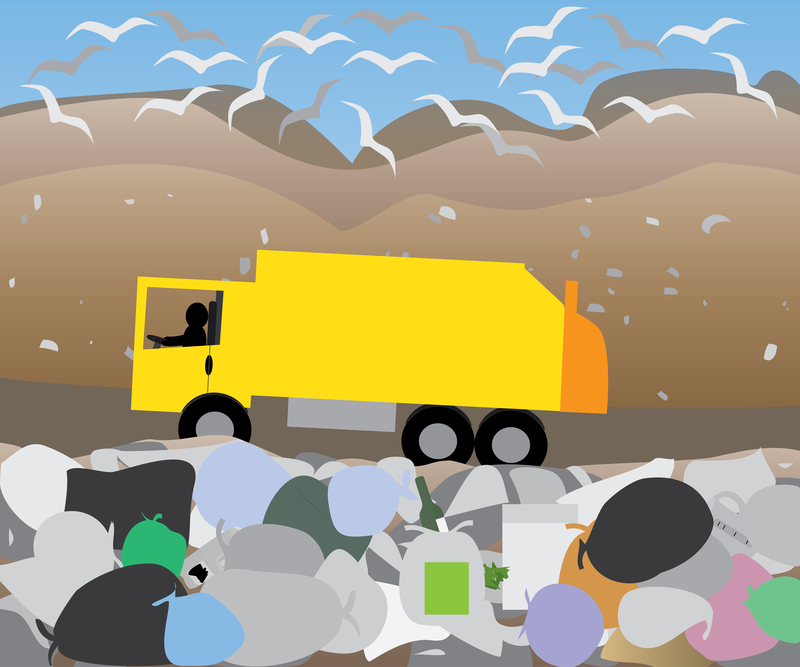The Ultimate Guide to Disposing of Old Chargers
In recent years, our reliance on electronic devices has increased exponentially, making old chargers an inevitable part of modern life. Whether you have a drawer full of outdated phone chargers, USB cables, laptop adapters, or other power cords, responsible disposal is essential to minimize electronic waste and protect the environment. This comprehensive guide covers everything you need to know about disposing of old chargers safely, legally, and sustainably.
Why Proper Disposal of Old Chargers Matters
Electronic waste, commonly known as e-waste, is a rapidly growing problem worldwide. Disposing of chargers and cables carelessly can have serious environmental impacts.
- Hazardous materials: Chargers may contain metals and chemicals, including lead, cadmium, and brominated flame retardants, which are toxic to both people and wildlife.
- Non-biodegradable: Plastic and metal components from adapters and cords do not decompose, adding to landfills indefinitely.
- Resource waste: Many components in old phone chargers, USB cords, and power bricks can be recycled and reused in new products, saving valuable resources.

Understanding E-Waste Regulations for Charger Disposal
Laws concerning the disposal of electronic devices, including chargers, vary by country and state. Most regions have enacted e-waste recycling regulations that encourage or even mandate responsible disposal.
- US: In the United States, over twenty states have passed e-waste recycling laws. Check with your local waste management authority about the rules in your area.
- Europe: The European Union's Waste Electrical and Electronic Equipment (WEEE) directive requires retailers and manufacturers to take back old electronics.
- Asia and others: Countries like Japan, South Korea, and Australia also have specific procedures for recycling e-waste that include chargers.
Tip: Never throw chargers or cables in regular trash. Their materials require specialized recycling processes to avoid harm to landfills and incinerators.
Sorting Your Old Chargers for Disposal
Before you get rid of your old charging accessories, organize and sort them:
- Gather all chargers, USB cables, and adapters: Search every part of your home--drawers, boxes, bags, and offices. You may be surprised how many you have accumulated.
- Separate by type: Sort chargers by the device they belong to (phones, tablets, laptops, gaming consoles, etc.). This helps identify which ones are still compatible with any devices you own.
- Check condition: Some chargers may still be working perfectly and can be reused or donated instead of disposed of.
Proper sorting maximizes your recycling options and makes it easier to follow disposal guidelines.
Best Options for Disposing of Old Chargers
1. Reuse or Repurpose Old Chargers
Sometimes, the most sustainable option is to give chargers a second life.
- Keep as backup: If you have spare devices, consider keeping an extra charger as a backup at home, work, or in your car.
- Repurpose for other devices: Many cables (like USB or micro-USB) are universal and can charge other electronics such as cameras or wireless headphones.
- DIY projects: Crafty individuals can use old charger cables in creative projects, such as powering LED lights or DIY electronics kits.
2. Donate Old Chargers
Many organizations and individuals can benefit from your still-functional chargers.
- Local charities: Organizations that provide technology to underserved communities often need chargers for donated devices.
- Schools & libraries: Educational institutions may accept working chargers for use with public computers or devices.
- Friends and family: Ask around! Someone you know may have lost or broken theirs and would appreciate a free replacement.
3. Trade-In or Take-Back Programs
Many electronics manufacturers and retailers offer take-back programs for old chargers and cables.
- Apple: Accepts old chargers, cables, and adapters for free recycling at their retail stores.
- Best Buy: Offers recycling bins for small electronics in-store, including phone chargers, cables, and adapters.
- Staples: Provides e-waste recycling drop-off points for a range of electronic accessories.
- Local stores: Contact electronics retailers in your area to determine if they accept old charging equipment for recycling.
Note: Some programs may even offer discounts or gift cards in exchange for turning in old accessories.
4. Electronic Recycling Centers
Specialized e-waste recycling facilities are the most reliable way to responsibly dispose of old chargers and cords.
- Locate nearby centers: Use resources like Earth911.com or your municipality's website to find certified electronic recycling centers.
- Drop-off procedures: Follow their guidelines for sorting, labeling, and dropping off your e-waste.
- Special events: Many towns host e-waste collection days; keep an eye out for local events.
5. Mail-In Recycling Services
For those short on time or without access to local recycling centers, mail-in recycling is a convenient alternative for safe charger disposal.
- Cable recycling companies: Several companies, like TerraCycle and GreenCitizen, mail you a box or envelope to fill with old cables and adapters, then handle proper recycling for a fee.
- Instructions: Make sure to follow packing and shipping instructions carefully for safety and compliance.
What Happens to Chargers After Recycling?
Ever wonder what happens after you drop your old charger into a recycling bin?
- Sorting and dismantling: Chargers are dismantled into their basic components--plastic, copper wiring, circuit boards, aluminum, and more.
- Material recovery: Plastics and metals are cleaned and processed for use in manufacturing new electronics or various products.
- Safe disposal of hazardous materials: Toxic substances are separated and handled according to environmental safety standards to avoid pollution.
Benefits of Recycling Chargers
- Reduces pollution and landfill waste
- Conserves natural resources by reusing metals and plastics
- Supports the circular economy and creates green jobs
What Not To Do When You Dispose of Old Chargers
- Never dispose of chargers or cables in your regular household trash. Landfills are not equipped to safely process e-waste.
- Avoid burning cords or adapters. This releases toxic fumes into the air and can be dangerous.
- Don't leave chargers outside or in the environment. Weathering can cause hazardous substances to leach into soil and groundwater.
- Don't attempt to dismantle your charger at home. Chargers are sealed for electrical safety and may contain components that are hazardous if improperly handled.
Frequently Asked Questions About Disposing of Old Chargers
Can I put old chargers in my recycling bin at home?
No. Most municipal curbside recycling programs do not accept electronic accessories due to their complexity and potential hazards. Always use designated e-waste collection points or recycling services.
Are old chargers valuable?
While the material recovery value of a single charger is small, collectively, recovered metals from hundreds of thousands of chargers can add up significantly. Some rare or vintage chargers may fetch modest prices from collectors or online resellers.
What if my charger still works?
Working chargers should ideally be reused, donated, or resold before opting for recycling. This helps maximize their usefulness and reduces overall e-waste.
How can I reduce charger waste in the future?
Opt for multi-device charging solutions and prioritize products that use universal standards such as USB-C. Properly store existing chargers to prolong their life and avoid unnecessary replacements.

Sustainable Alternatives to Traditional Chargers
New eco-friendly trends in charging technology are helping to reduce future e-waste:
- Modular chargers: Replace only worn-out cables or plugs instead of the entire charger.
- Universal adapters: Buy chargers that work across different brands and devices to minimize excess.
- Solar-powered chargers: Reduce your reliance on plug-in adapters and e-waste by harnessing renewable energy.
- Durable, high-quality products: Invest in chargers and cables with longer warranties and robust construction to extend their usable life.
Conclusion: Taking Responsibility for Your Old Chargers
Our dependence on electronic devices makes chargers a basic necessity in every home. But once they outlive their utility, they become part of a rapidly growing e-waste problem.
By following the tips and information in this guide, you can ensure your old phone chargers, USB cables, laptop adapters, and other power accessories are disposed of safely and sustainably. Whether you choose to recycle, donate, repurpose, or use a take-back program, these actions help preserve our environment and conserve valuable resources for the future.
- Always sort and test chargers before disposal
- Use certified recycling centers, mail-in programs, or retailer take-back services
- Spread awareness and encourage responsible e-waste management in your community
One charger at a time, we can all make a difference. Dispose of your old chargers the right way, and be part of a cleaner, greener future.